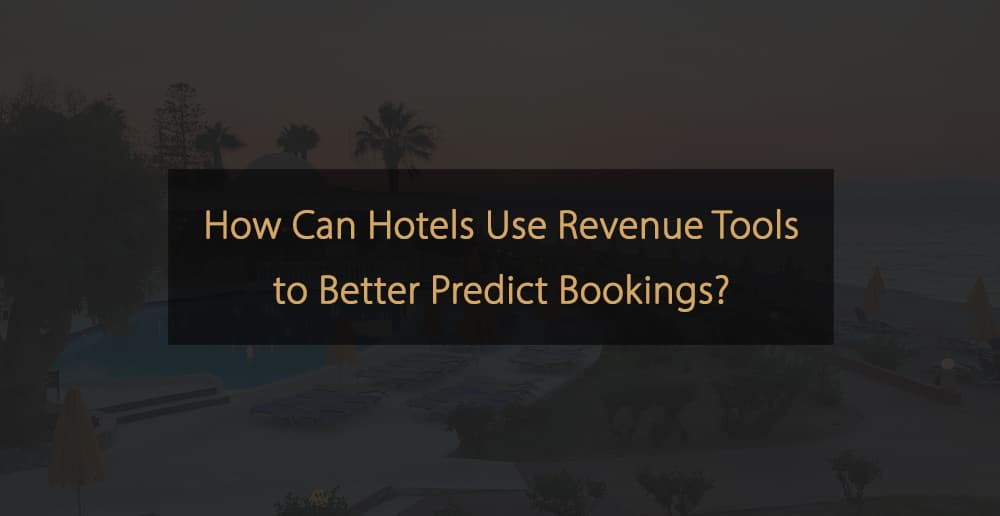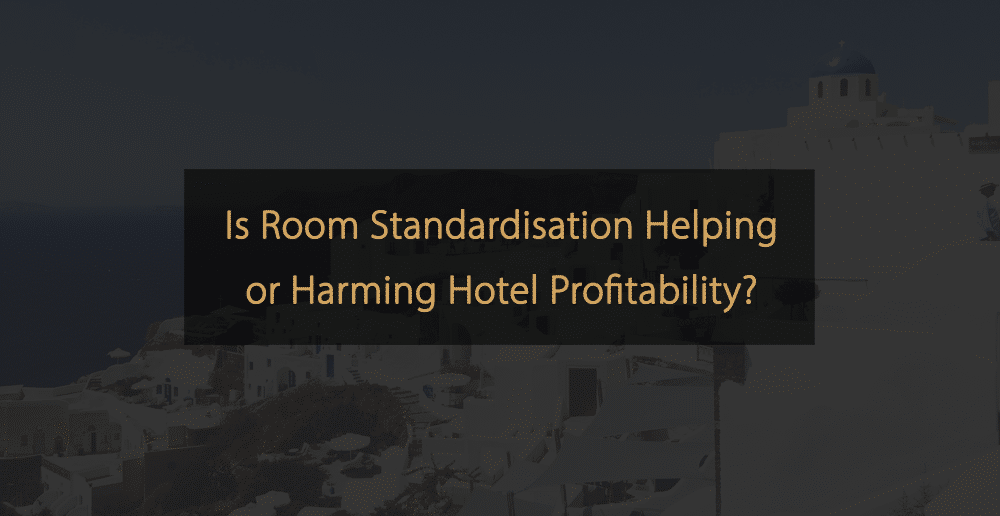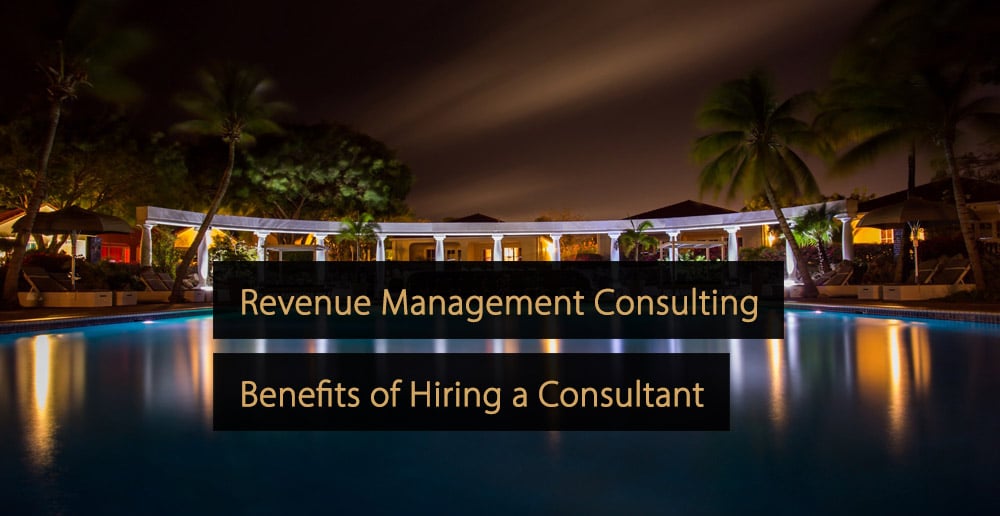Question for Our Revenue Management Expert Panel:
What are the advantages and disadvantages to outsourcing revenue management? Is there a difference depending on hotel / property type?
Industry Expert Panel
Our Industry Expert Panel exists out of professionals within the hospitality & travel Industry. They have comprehensive and detailed knowledge, experience in practice or management and are forward-thinking. They are answering questions about the state of the industry. They share their insights on topics like revenue management, marketing, operations, technology and discuss the latest trends.
Our Revenue Management Expert Panel
- Diego Fernández Pérez De Ponga – Director of Revenue Management, Palladium Hotel Group
- Dermot Hrlihy – Owner, Dynamic Hospitality Consulting
- Ricardo Sereno – Revenue Manager, Altis Hotels
- Dr. Betsy Stringam-Bender – Professor of Hotels & Resorts, New Mexico State University
- Daniel Feitosa – Revenue Management Specialist
- Pablo Torres – Director Of Sales Marketing, Alannia Resorts
- Nikolas Hall – Owner, H. Hall Consulting
- Krunah Shah – Director of Revenue Management, The Biltmore Mayfair, LXR Hotels & Resorts
- Fabian Bartnick – Founder, Infinito
- Silvia Cantarella – Revenue Management Consultant, Revenue Acrobats
- Massimiliano Terzulli – Revenue Management Consultant, Franco Grasso Revenue Team
- Daphne Beers – Owner, Your-Q Hospitality Academy
- Mariska van Heemskerk – Owner, Revenue Management Works
- Chaya Kowal – Director of Revenue Management, Potato Head Family
- Annemarie Gubanski – Founder and CEO, Taktikon
- Ask Our Panel a Question
- Join Our Expert Panel
“This is a complicated question because it depends on your hotel, your business mix and your type of accommodation, but let me summarize the pros and cons from my point of view.
Pros
- There is almost no onboarding process; outsourcing companies are used to controlling different PMS and RMS so they are able to start working on a property almost right away
- They are a variable cost and you lower your labour cost
- If they used their own technology, you save that money
Cons
- In a world dominated by media gurus, it is becoming complicated to find the right outsourcing company
- Cost: the best one-in-class is normally more expensive than having your own resources
- Lack of control: you easily lose control of your pricing strategy”
“The opportunity to give real focus on the strategy and market opportunities are the greatest advantages I see. For big hotels, chain hotels or even small properties, boutique hotels and bed and breakfasts, for example, every property can benefit from the insights of a specialist revenue management staff. Also, outsourcing doesn’t have a bias that most hotels do when you have your own staff. Of course, for different hotel types, you may need different support. Big chains must have support for their long-term vision and positioning of different hotel brands (which do not apply to small hotels). The networking and ideas generated by an outsourced company are also a must, and the hotel can benefit from them.
In my opinion, it is a great way to professionalise (or boost) the RM structure. For sure, one of the main disadvantages is that outsourcing companies are not looking 100% only for your hotel/business. They have other clients and may not be at your disposal 24/7. Of course, even a dedicated RM is not available 24/7, but it is easier to keep in touch and make strategy adjustments and revisions.
And, also, we have a risk for those hotels that leave the strategy for the outsourcing company. Hotels should have people (or one person, depending on the hotel type) to understand and keep in touch, following up and checking if the outsourced RM company is fitting their interests and if the long-term strategies are well set.”
“In any kind of property and structure, if you can’t afford to hire one (or a team) of Senior Revenue Managers and be able to train them regularly, you should hire outsourced RM. This goes for both independent hotels and smaller chains.
Constant training and teamwork analysis are the keys to the most effective pricing strategies, and they reflect effectively on your results. So you must have highly skilled professionals doing it instead of taking it into your own hand or hiring someone that will be average forever or good for a while (and then will resign for a better paying job or to go to a big chain).
There is also a halfway solution. Some RM consulting firms offer guidance in the form of the CRO/DORM position, and for a smaller cost, you will have someone that will help your Junior Revenue Manager with Market insights, high-level decision making and, last but not least, training and constant support.
I believe that the impact of a great Revenue Manager will be felt both in city and resort hotels, as well as in the 7 Apartment lodging and in the 500-room hotel with a convention centre. The cost of a good revenue manager would be the same (and too much for most of the smaller hotels) but the outsourcing cost adapts to each property size and business model.
If you have a hotel chain that can afford at least a Director or Cluster RM with a team behind them, I believe that outsourcing should not be a solution, as internal teams are quite strong and will be more efficient than outsourcing.”
“As in most cases for the hotel industry, there is not a one size fits all answer to outsourcing revenue management. There are many factors that contribute to a decision to outsource. The primary question for outsourcing any service or skill is: “do I have the skills and resources needed to do the job?” Similarly, a universal question when evaluating outsourcing is: “does the company understand my property, product and market?” Outsourcing revenue management is usually not a yes or no question. I never recommend outsourcing complete decision-making for any part of a hotel operation.
It is common for a remote revenue manager with advanced analytical skills and expertise to support a property. This remote person can be part of a franchise company, ownership company, or management company. The key word is support. The remote expertise provides insight and recommendations to the property, who in turn makes the revenue management decisions. This support however is not a one-way conversation. Properties discuss the intricacies of their product and market with the remote revenue specialist and together develop potential revenue strategies. For an independent hotel, the same expertise is available on a fee basis through outsourcing. But again what should be outsourced is expertise and support, not the final revenue decisions.
Revenue specialists can provide expertise and analytics beyond the immediate market but are likewise not experts in the local market characteristics. A revenue specialist can have access and expertise in using several systems and databases that may be beyond the time requirement and expertise available to a hotel. There are many revenue tools or systems that can be deployed at the local level by a hotel. These tools have greatly improved in recent years. They have increased capabilities and are easier to use, putting revenue management analytics in the hands of more hotel managers.”
“The opportunity to give real focus on the strategy and market opportunities are the greatest advantages I see. For big hotels, chain hotels or even small properties, boutique hotels and bed and breakfasts, for example, every property can benefit from the insights of a specialist revenue management staff. Also, outsourcing doesn’t have a bias that most hotels do when you have your own staff. Of course, for different hotel types, you may need different support. Big chains must have support for their long-term vision and positioning of different hotel brands (which do not apply to small hotels). The networking and ideas generated by an outsourced company are also a must, and the hotel can benefit from them.
In my opinion, it is a great way to professionalise (or boost) the RM structure. For sure, one of the main disadvantages is that outsourcing companies are not looking 100% only for your hotel/business. They have other clients and may not be at your disposal 24/7. Of course, even a dedicated RM is not available 24/7, but it is easier to keep in touch and make strategy adjustments and revisions.
And, also, we have a risk for those hotels that leave the strategy for the outsourcing company. Hotels should have people (or one person, depending on the hotel type) to understand and keep in touch, following up and checking if the outsourced RM company is fitting their interests and if the long-term strategies are well set.”
“The main advantage seems clear: to have expert support without having to commit to hiring someone full-time. As with any consulting service, if that service is consistently used, it might eventually become more expensive than having an in-house professional. However, the pandemic showed a great number of top professionals starting their own private practices as external consultants and that has driven fees down. All in all, an option well worth considering for many independent hotels that don´t yet have the luxury of an onsite revenue manager.”
“In light of the current labour challenges the hospitality industry faces, outsourcing a variety of functions – amongst them Revenue Management – seems to be a feasible solution. As a hotel owner/manager, it’s easy to focus on the benefits of outsourcing, all without considering the impact it can have on your hotel and it is, therefore, imperative to compare the pros and cons of outsourcing.
On the plus side – You do not have the hiring commitments & costs associated with signing a revenue expert. By searching a global talent pool, it’s easier to find the right talent at the right price to resolve your need for specialised help. You get expertise for a fraction of the cost you would otherwise have to pay. There also tends to be an increased focus on strategy/core competencies & you get to have a fresh set of eyes to evaluate your current set-up and strategies.
Many express concerns about risks involving confidentiality and security when handing over direct control of a function or process to a third party. On the downside – there is the possibility of communication & quality issues. In addition, there can be a lack of control & possible inconsistencies in accordance with your preferences. You also need to take steps to ensure that it doesn’t have a negative effect on company culture.
Outsourcing is a great way to put a spin on your business, but for success, it really does require that there are clear and concise expectations for strategy, performance, quality & outcome between the parties involved.”
“Cost is one of the first and foremost things to keep in mind whilst outsourcing revenue management. When revenue management is outsourced, there is a fixed cost irrespective of expertise and experience. A remote revenue manager can work for multi-properties looking at various regions. On the other hand, emotions of market conditions are unknown and remote revenue managers rely on market data analysis and act accordingly. In-house revenue managers have relationships with other departments in the hotel which in turn helps to generate more revenue.
When looking at this regarding hotel/property type, I would rather look at different criteria such as Cost, Expertise & Exposure, Guest Experience, Strategy, Data etc. Hotels are becoming more and more dynamic and transforming themselves to these ever-changing scenarios. It is always a huge confusion in hiring in-house revenue management experts or outsourcing revenue management where strategies become more comprehensive depending on the data analysis.”
“Outsourcing is the future of revenue management. Besides cost control and flexible hours, you can assign project work to consultants and get higher-quality talent. Having an onsite revenue manager is an old-school approach as technology these days allow one good person to do more.
Is there a difference between hotels? Sure. However, this flexible model makes it much more adaptable to all styles of hotels.”
“Outsourcing provides great flexibility and fills the gaps when expertise is missing at the property level or when there are not enough resources to hire a full-time revenue manager. On the other hand, I believe it is important to make sure there is a reference person on the property that can be the link between the outsourcing revenue manager/team and the operational staff for any issues that might require immediate attention. The outsourcing resource might overlook multiple properties at the same time and cannot be 24/7 on one property only, so it is important to create a balance between the strategic and operational side of the job.”
“For a large resort or a property with many cost and revenue centers, or for a chain, it is generally more convenient to internally hire a resource who can also follow a cluster of properties. This is because the time needed for all the strategic, forecasting and accounting activities that such properties may require is high, and therefore an internal revenue manager is more logical, convenient and effective.
In fact, the impact of the revenue manager’s salary on the total revenue is very low, between 1 and 5%, depending on the size and services offered by the property(s) they manage. So the cost is justified by the required activities, and by the potential revenue that an internal revenue manager can bring.
If it is a small independent hotel, usually under 50 or 100 rooms depending on the destination and category, and with few revenue centers, it is certainly more convenient to rely on outsourcing. This type of facility does not require a full-time and on-site revenue manager as the activities are comparatively fewer when compared to a chain hotel. So outsourcing could save them a lot of money compared to hiring a full-time revenue manager. The cost is much lower, generally a quarter or a fifth of an in-house and full-time revenue manager.
Another advantage is the time-saving element, and for an owner or general manager of a small independent property that carries out many activities at the same time, it is really very difficult to manage all the activities related to revenue management on their own, such as market analysis, the elaboration, execution and supervision of a commercial and pricing strategy, online and offline distribution etc.”
“Advantages:
- You hire experts and their systems, ways of working and experience. This way you do not have to put in the time, effort and money in developing, hiring and guiding your own team members. Also, you do not have to invest in creating your tech environment, research and implement. These are two big advantages that I see.
Disadvantages:
- From my experience, revenue management is part of your core business and strategy and therefore difficult to outsource. The low attachment of external parties and not being connected to the vision and purpose of your company can harm results.
- Also, they are not part of your team. This often causes friction and tension when priorities and stakes are changing. Managing relationships costs time and money.
- External companies have their own agenda (of course they will put the effort in the deliverables) and you are always sharing their attention with their other clients.
- It is difficult to stop contracts once they are in place (read the terms and conditions carefully!)
- Risk of data interference and doing revenue exactly the same as other hotels. The willingness to take risks and think outside the box is not in their interest, and this is exactly where you can find growth opportunities.
I believe the considerations would not matter to the business type. My advice is to automate and innovate revenue management rather than outsourcing!”
“The biggest advantage of outsourcing your Revenue Management is the expert knowledge you bring to your company. Often Revenue Management is something done by Front Office, Reservations, GM, etc., i.e., those that, with the best of intentions, look at prices and restrictions but do not have the latest market intelligence or information on best systems to use. Not would they have the skills to make a forecast and based on continuous forecasting, update the hotel strategy again and they may not be able to challenge other departments on their revenue outcome.
If all this is indeed done by a Revenue Manager (who is often the only person with this knowledge in the company), how are we checking quality, and are we guiding them?
The disadvantage can be the distance between the hotel and Revenue Management, the lack of presence in the actual hotel, and real moments to discuss strategy/actions. Revenue Management is so much more than only looking at pricing. When you have a rooms-only, small hotel, with only transient guests, and little contracted business, outsourcing can be easily done. However, with slightly bigger hotels, more challenging locations and a complicated business mix, you need expert advice, and simply outsourcing your pricing is not enough. Ensure you outsource to someone who can still be involved enough to benefit the entire hotel or hire someone for strategic sessions/coaching/training of your Revenue Manager. And why not have them train/educate and guide? This way you ensure your strategy is up to date while your Revenue Manager and team get a chance to grow as well.”
“Outsourcing RM might be beneficial for smaller, independent properties that do not have the budget for hiring a full-time Revenue Manager or for investing in proper Revenue Management tools. When outsourcing RM, the property is also getting access to a larger pool of qualified revenue professionals who not only have the experience of handling different property types, but also different locations. In this case, it might be helpful from a strategy and creativity point of view and they could see better ROI.
Outsourced RM companies have a bigger network and could help better negotiate rates with suppliers (for example RMS) and can also provide better recommendations based on their vast experience.
On the other hand, the outsourced professionals might not be as invested as an in-house Revenue Manager would be and they might not be fully aligned with the company’s culture and vision.”
“The advantages are many, one being that the property gets access to very experienced Revenue Managers. It takes a good number of years of experience to become a really good Revenue Manager with the result that they come in short supply. Furthermore, the outsourcing company needs to deliver from Day One and make sure there always is a Revenue Manager taking care of the property, meaning that holidays and sick leaves are covered.
A disadvantage often mentioned is that the Revenue Manager is not a part of the team, which is a big responsibility for the outsourcing company to solve. I strongly feel that an outsourcing company should work closely with their properties and maintain close contact with all departments involved.”
Ask a Question & Join Our Expert Panel
Would you like a question to be answered by our Industry Expert Panel? Or would you like to join our community of experts and share your experience, insights, and knowledge with fellow industry professionals? Via the buttons below you can submit a question or submit a request to become part of our expert panel.
More Tips to Grow Your Business
Revfine.com is the leading knowledge platform for the hospitality and travel industry. Professionals use our insights, strategies, and actionable tips to get inspired, optimize revenue, innovate processes, and improve customer experience.Explore expert advice on management, marketing, revenue management, operations, software, and technology in our dedicated Hotel, Hospitality, and Travel & Tourism categories.






















Leave A Comment